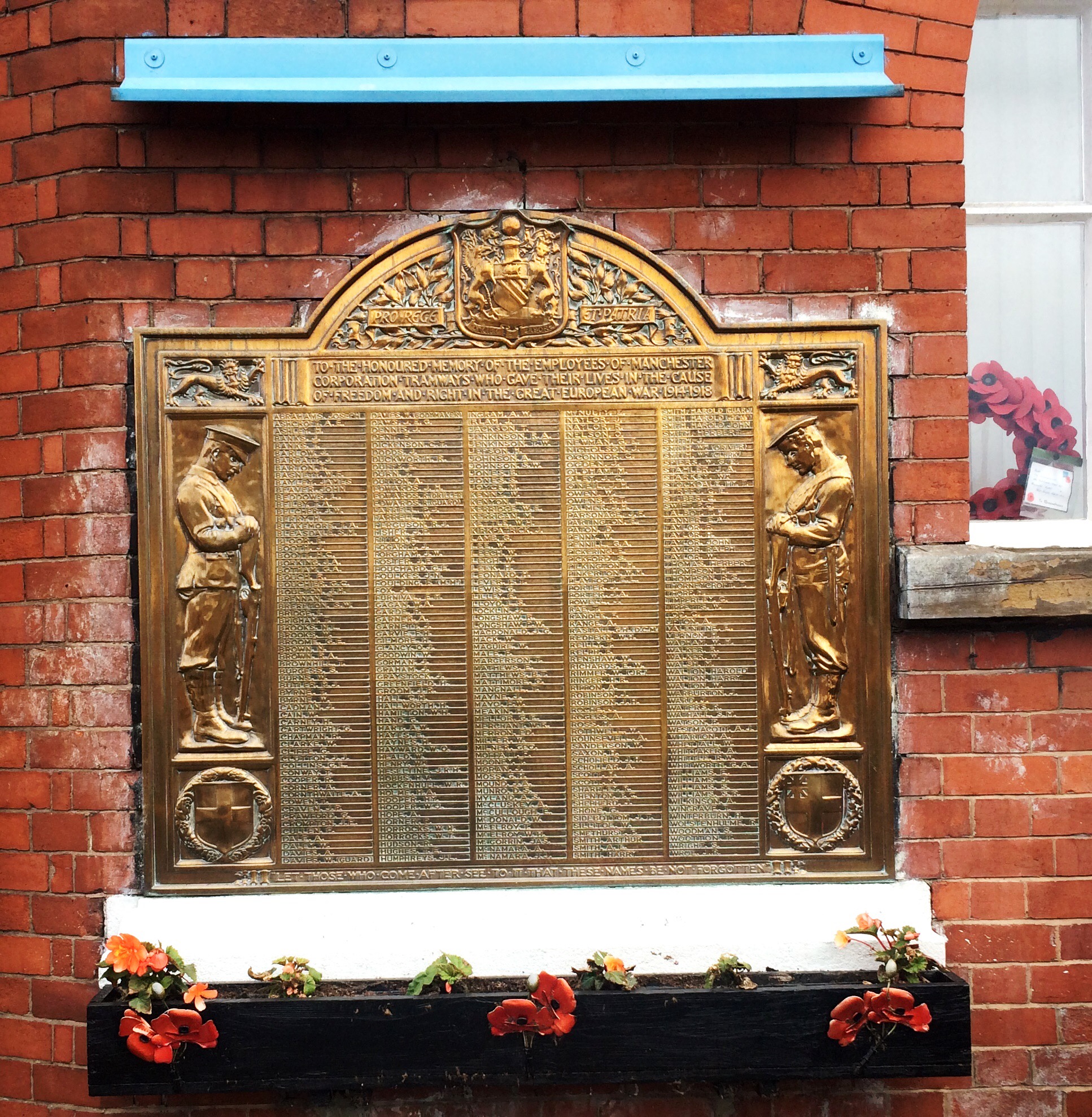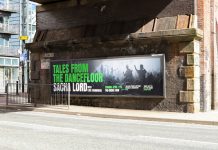Ahead of the Somme 100 memorial event in Manchester on 1 July, Transport for Greater Manchester remembers the transport staff who served in the First World War.
Manchester Corporation had 5,529 employees who enlisted to serve in the First World War and 2,900 were tramways employees, from body makers and drivers to trolley boys, whose job it was to give the driver a bell signal at the stops and help passengers on and off. Tragically, 19 employees died on 1 July 1916, the first and bloodiest day of the Battle of the Somme.
The Tramways Department commissioned war memorial plaques to commemorate the 310 staff who lost their lives throughout the First World War, including the 19 who died at the Somme. These plaques remain in place at the current Hyde Road, Queens Road and Sharston depots of Stagecoach and First.
Martin Logan, Greater Manchester Transport Society member, who worked on Manchester Buses from 1977 – 2014, has been researching the names of the Manchester Corporation Tramways employees on the memorial plaques for the past ten years. Martin’s research has found that John William Forgham, of the 16th Battalion Manchester Regiment, First City Pals, was employed as a car (tram) cleaner. He was killed aged 24 at the Somme. Stanley Burgess of the 20th battalion Manchester Regiment, Fifth City Pals, was a boilerman with Manchester Corporation Tramways. He was killed aged 29. Both men are remembered on Thiepval Memorial, The Memorial to the Missing of the Somme and at the current bus depots at Hyde Road, Queens Road and Sharston.
While many made the ultimate sacrifice, some Manchester transport workers did return home. One man who survived was Edmund Leach. Born in Oldham, Edmund was a transport driver in the 24th Battalion Manchester Regiment during the First World War. When the Battle of the Somme began, the British suffered 60,000 casualties, but Edmund’s battalion were able to proceed.
Conditions were hard for transport drivers and their horses as they waded through knee-deep mud. They carried vital supplies as well as wounded men to medics, which was dangerous work as they were targeted by machine guns and artillery to prevent supplies and medical assistance getting through to troops.
After returning to his home Edward and his wife, Agnes, went on to have three children. He was awarded three medals for his service in France and Italy.
While the First World War resulted in tragedy and hardship for many, it also brought some positive changes to the lives of Manchester women. New employment opportunities opened up, largely in transport.
Women began working as bus conductors, ticket collectors, porters and carriage cleaners. During the war it is estimated that the number of women working on the railways rose from 9,000 to 50,000.
George Turnbull, Head of Collections Management at the Museum of Transport, said: “We have a substantial archive of local transport history, including artefacts relating to the First World War.
“One particularly important artefact is a Roll of Honour published by the Manchester Corporation Tramways Department in 1918, which lists all the men who joined the army or navy, and, separately, those who died. It gives details of their employment (driver / pavior), their military unit, rank and number.
“We are also honoured that one of the memorial plaques to commemorate the Manchester Corporation Tramways staff is now housed in this museum so people can visit and pay their respects.”
TfGM’s Event Manager John Fryer – who is coordinating the transport operation in support of the events in Manchester – commented: “We’re extremely proud that national events to commemorate all those who fought and died or were injured in the Battle of the Somme are taking place in Manchester and we are working with all our partners to plan and prepare for the day.
“It is extremely important that we remember the sacrifice made by so many and, with the help of the Transport Museum, we have been looking back to see how the war impacted on those working in the transport industry at the time.
“Most of what we have learnt is terribly sad: young men who left their family and friends behind and never returned – and the devastation that caused to loved ones here. But we’ve also learnt of men who went on to live rich and fulfilling lives after the war – such as Edmund Leach, and of women who stepped in to roles predominantly held by men to keep Manchester moving during the war.
“As part of the events on 1 July, the Manchester Transport Museum Society, which operates the preserved tramway in Heaton Park, is displaying its 1914 single deck tram in wartime guise, which I think will be a really great addition to what’s going on there.
“Ultimately, venues like the museum are important to preserving Manchester’s local history and I’d encourage anyone who isn’t able to attend Heaton Park on the day to pay them a visit and learn more about our fascinating past.”







